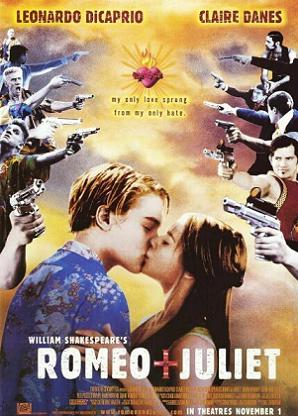To celebrate the rebirth of my personal blog as a study of the Gothic, I am reposting four entries from years past. They are a little musty and damp, but they’ll give a sense of what this blog is going to sound like in the weeks and months to come.
This second installment from 2007 is a discussion of contemporary critical theory, part of an perennial discussion we have at the Gothic Funk Nation.
This month I’m returning to Baz Luhrman’s Red Curtain Trilogy as my original inspiration for Gothic Funk. But I’m really thinking about developing a more proximal and intuitive definition, a clearer sense of to what extent we need to justify the project critically, and to decisively differentiate our efforts from what has come before.
Anyway, examples of “Gothic Funk” have been easy to find in the last few years – Epistle #1 argues this – and occasionally in conversation we have resorted to a specialized (if somewhat improvised) vocabulary to deal with concepts.
For me, the most important example of this occurred in 2006 as part of the discussion that produced the Conversational Manifesto. We referred to the “big thing” as the larger, possibly global, perspective that included and exceeded Gothic Funk (and gothic funk). Gothic Funk, in fact, is simply one possible articulation of the “big thing.”
It is interesting to me that, while we were talking about what is (often derisively) called post-postmodernism we intuitively avoided that label ourselves. And while “big thing” is vague and subjective and applicable to anything – completely wanting except to differentiate a larger framework from Gothic Funk – I’m now starting to think that the choice was significant.
Post-Postmodernism is essentially a Postmodern term, and its use implies an inability to escape from Postmodern conceits. This is literally true in the actual composition of the names: both are defined fundamentally by their relation to Modernism. Not simply a striving for objectivity, but even causality is removed by such a terminology. All that remains is the sequence or chronology of perspectives. What separates Post-postmodernism from Postmodernism? By the name, nothing, except order. Post-postmodernism would be similarly meaningless with respect to presumed successors (Post-post-postmodernism anyone?) and the Pomo taste of the implied infinite regression of these figures should be painfully obvious.
More significantly, however, is that Post-Postmodernism is a teleologically Postmodern term. (Of course Postmodernism is confrontationally “non-teleological,” but that contradiction is part of the reason the whole ship won’t float.) “Postmodern” as a word gives a special status to Modernism/Modernity as the decisive moment of transformation. Within the critical framework of Postmodernism (and not necessarily its most reductive extremes), Modernism was an endpoint. It represented the moment at which language/art/semiotics, in an extreme effort to obtain objectivity through abstraction, failed to achieve objectivity at all. All movements/perspectives which follow this semantic approach therefore have to absolve themselves of such a quest, or at least any hope of its reasonable fulfillment. Terminologies that embrace the split accept, by default, the most fundamental precept of Postmodernism: the irrelevence and impossibility of objectivity.
This is not indended as (yet another) attempt to rip down Postmodernism. I’ve done that elsewhere. Rather, I wonder what might be a better term for a movement/perspective that does successfully address the issues raised by Postmodernism. What we have called Gothic Funk so far has certainly included many Postmodern techniques, although not a Postmodern philosophy. Iterative art, self-conscious art, art that incorporates its environment and allusions both elastically and irreverantly all come into play. These tricks are so common in our parties/letters/manifestoes that a clean break (which I do not believe is what we seek) is out of the question.
But the model of naming convention by simple succession is equally out of the question.
A major premise of the Gothic Funk project is that Postmodern dilemmas can be addressed; that there are solutions, even if they are not absolute.
Because this is our understanding of the discussion – the opportunity to move beyond or through issues of negation/subjectivity – I’m inclined to use the term “Trans-Postmodern.” At least until someone can rigorously argue in favor of an even more descriptive term. “Trans-Postmodern” is obviously more descriptive than the “big thing.” It is also more accurate than “Post-Postmodern” because it presents both a struggle with Postmodern conceits, and (at least the partial) resolution of that struggle.
